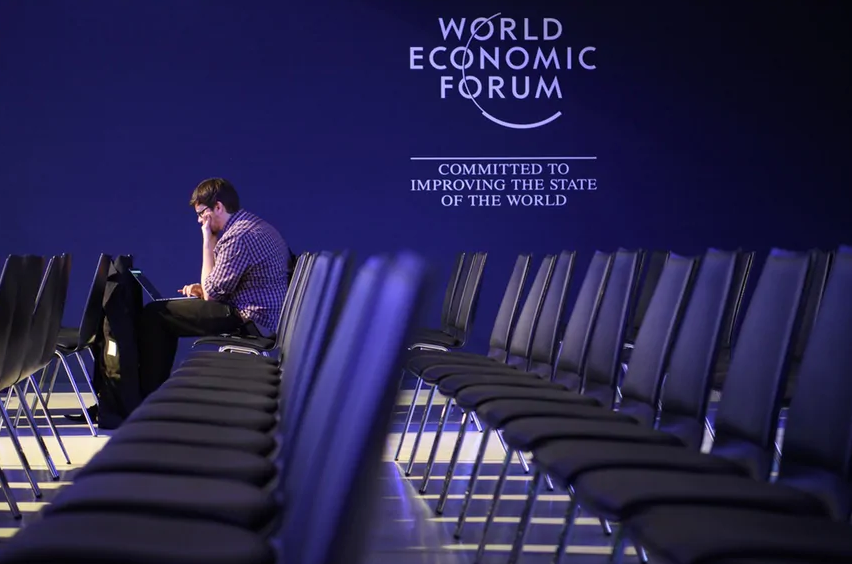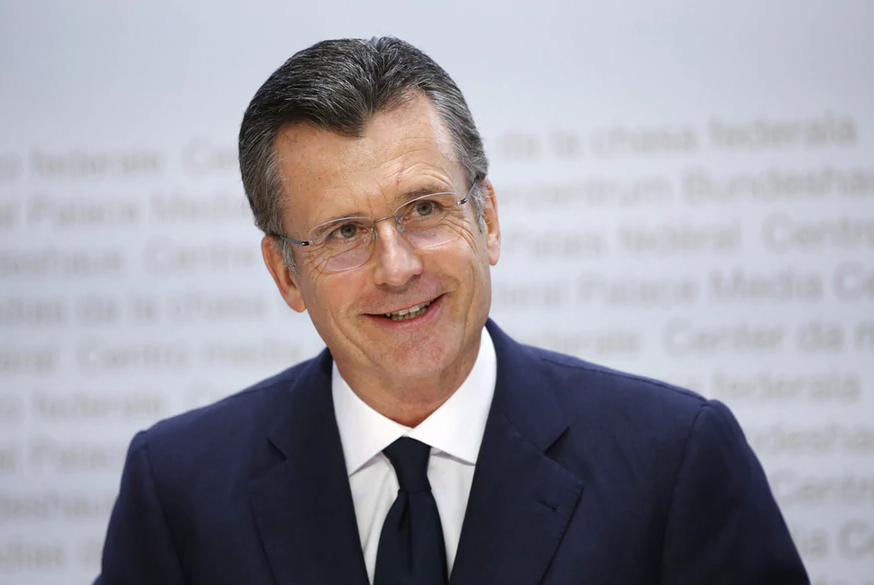Looking for answers at the World Economic Forum in Davos in 2018. Keystone / Laurent Gillieron The World Economic Forum should put global leaders in the audience to listen to social workers, virologists and reporters, argues Simon Kuper. We don’t know yet what will happen in 2021, because the World Economic Forum’s meeting in Davos has been called off. Normally at this time of year, political and business leaders gather in the Swiss ski resort to reveal the future. Now we’ll only discover what’s coming when they meet in Singapore in May. Actually, scratch that: most Davos predictions are worthless. There is no VIP crystal ball. My aim here isn’t to mock Davos – that’s too easy. I’ll even skip the ritual joke about rich men arriving on private planes to discuss
Topics:
Swissinfo considers the following as important: 3.) Swiss Business and Economy, 3) Swiss Markets and News, Featured, newsletter, Politics
This could be interesting, too:
Investec writes The Swiss houses that must be demolished
Claudio Grass writes The Case Against Fordism
Nachrichten Ticker - www.finanzen.ch writes Die Performance der Kryptowährungen in KW 9: Das hat sich bei Bitcoin, Ether & Co. getan
Nachrichten Ticker - www.finanzen.ch writes Wer verbirgt sich hinter der Ethereum-Technologie?
The World Economic Forum should put global leaders in the audience to listen to social workers, virologists and reporters, argues Simon Kuper.
We don’t know yet what will happen in 2021, because the World Economic Forum’s meeting in Davos has been called off. Normally at this time of year, political and business leaders gather in the Swiss ski resort to reveal the future. Now we’ll only discover what’s coming when they meet in Singapore in May. Actually, scratch that: most Davos predictions are worthless. There is no VIP crystal ball.
My aim here isn’t to mock Davos – that’s too easy. I’ll even skip the ritual joke about rich men arriving on private planes to discuss climate change, sexism and inequality. My only question is: how to improve the Davos product?
First, let’s review past predictions. In January 2008, as the subprime crisis unfolded, Davos buzzed with confidence, nicely articulated by Fred Bergsten of the Peterson Institute for International Economics: “It is inconceivable – repeat, inconceivable – to get a world recession.” To be fair, the forum’s 54-page Global Risks Report did include two paragraphs on subprime mortgages.
By January 2016, the referendum on Brexit was expected that year, while Donald Trump was the most-discussed Republican presidential candidate, about to win the New Hampshire primary. Yet that month’s mentioned neither risk.
With everyone at Davos saying a Trump presidency couldn’t happen, economist Ken Rogoff suddenly realised it could. He told Bloomberg: “No matter how improbable, the event most likely to happen is the opposite of whatever the Davos consensus is.”
Leaping nimbly from blindness to power worship, Davos then welcomed Trump whenever he dropped in to spout falsehoods. On January 21 2020, last year’s opening day, the WEF’s founder Klaus Schwab thanked the already impeached president for “injecting optimism” into the global discourse. “We need dreams,” exulted Schwab.
By January 22, CNN was running “live coronavirus updates” on Chinese lockdowns, mandatory face masks and the virus’s arrival in the US – none of it mentioned by Trump or indeed almost any speakers at Davos. The panel titled “The Next Super Bug”, a tour d’horizon of biological threats, did very briefly address the actual next super bug. One panellist, Richard Hatchett of the Coalition for Epidemic Preparedness Innovations, said the coronavirus could “potentially cause tens, hundreds of thousands of deaths, or even millions”. That thought was left unexamined.
Later, Hatchett added soothing words about the Wuhan outbreak: “You’re about to see social reactions that are probably going to be disproportionate to the current threat… You can’t predict what the next disease is going to be, by definition. You can’t predict when it’s going to happen.” It was already happening.
I don’t expect Davos to reveal the future. Almost all longer-term predictions (including mine, when I’ve been stupid enough to make any) are wrong. But Philip Tetlock, the psychologist who studies forecasting, told Davos in 2017 that skilled forecasters could illuminate the short term, specifically the “three- to 18-month range”.
The WEF, to its credit, summoned Tetlock to explain why Davos kept getting things wrong. He offered faint reassurance: “The notion that Davos Man is always wrong, that’s actually not true. It’s very, very difficult to do worse than chance. Whether the Davos Man is more accurate than the dart-throwing chimpanzee is another question.”
Masters of the universe are poor forecasters. That’s probably because of groupthink and because of Tetlock’s insight that famous and self- confident people are especially bad at predicting. They talk their own books and they are far from the coalface. In 2016 a panel of Davos Men’s chauffeurs might have done better at predicting Trump.
Perhaps the purpose of Davos is networking, but then why bother generating misinformation? A smarter summit would stick world leaders in the audience while social workers, virologists and reporters recounted recent trends. Davos should fly in Arieh Kovler, a corporate communications consultant in Jerusalem, who tweeted on December 21, after studying pro-Trump online forums: “On January 6, armed Trumpist militias will be rallying in DC, at Trump’s orders. It’s highly likely that they’ll try to storm the Capitol after it certifies Joe Biden’s win.”
For insights into the distant future, “leaders” should defer to creative types. After 9/11, the Pentagon wisely brainstormed with representatives from Hollywood about possible future attacks. TV show in 2000 foresaw a Trump presidency causing a budget crisis.
In 1995, the astronomer, writer and poet Carl Sagan expressed his “foreboding” of a future America “when nearly all the key manufacturing industries have slipped away to other countries; when awesome technological powers are in the hands of a very few, and no one representing the public interest can even grasp the issues”. He foresaw “pseudoscience and superstition, but especially a kind of celebration of ignorance”, while the US slid, “almost without noticing, back into superstition and darkness”.
Post-pandemic, we need to re-engineer our world. Much of this will be difficult. Some of it, like ditching Davos, is surprisingly easy.
Copyright The Financial Times Limited 2021
Tags: Featured,newsletter,Politics









